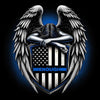4 effective tips for 911 dispatchers
Emergency responders must act as fast as possible; the safety of the community is at stake.
Responders, on the other hand, cannot be completely prepared to receive emergency calls unless they are given sufficient context and information. Dispatch operators must strike a balance between obtaining detailed information and disseminating it quickly. It's critical that dispatchers have a clear picture of the situation and get it to emergency personnel immediately.
However, some dispatch centers still use pen and paper to record crucial data of emergency calls and flip cards to trigger operator queries across the country. These antiquated approaches are insufficient. To achieve faster reaction times, more efficient operations, and ultimately safer communities, dispatching centers must employ sophisticated technologies.
Improving dispatch operations necessitates technological advancements yet adjusting to new technologies can be challenging. Onboarding and training 911 dispatchers, both new and experienced, may be a lengthy and tedious procedure.
It is critical to invest in appropriate onboarding since there is no space for errors. We've provided a few 911 dispatcher training recommendations to assist you in optimizing this procedure.
Tips for Efficient Onboarding of 911 Dispatchers
1. Teach dispatchers to cope with stress
Although dispatching is a high-stress job, dispatchers must maintain their composure in order to achieve clarity, especially in life-or-death circumstances.
The onboarding procedure is critical to new dispatchers' success. Set new operators up for success by concentrating on the most important scripts and processes and giving them with tools to help them along the way. Dispatchers are more prone to panic during a call if they don't know the processes by heart, can't access the software quickly, or aren't sure what to say.
Pre-recorded scenarios may be used during training with the proper CAD software to help dispatchers learn how to manage high-stress calls so they are better equipped to handle real situations with a clear head.
2. Focus on procedures
Distinct events necessitate different protocols, and 911 dispatchers must know these procedures off by memory. They shouldn't have to think before they act by the time they're onboarded and taking real calls—what to say, who to call, and how to manage the issue should all be instinctive responses imprinted in them during the training process.
Treat software use as one of these required steps during the onboarding process. Teach dispatchers about computer-aided dispatch, data input, and software processes so they can make sure they're working with the program rather than against it to get the appropriate data and take the right decisions.
3. Master information flow
During a call, the importance of information flow cannot be emphasized. The time it takes for first responders to arrive on the scene in some emergency situations might be the difference between life and death. The dispatch process is slowed by unreliable or inefficient 911 dispatch software that has errors, utilizes too many screens, or takes too many clicks. For dispatchers to master data entry, 911 dispatch software must have a clear and easy-to-use interface.
So, how do you train new dispatchers for the stressful reality of responding to emergency calls? By employing pre-recorded, fake-call situations to educate students how to grasp the software's information flow. Exposure to these simulations will aid them in adapting to the program and fine-tuning their approach in order to better support responders and increase community safety.
4. Conduct shadowing with side-along software
Dispatcher shadowing is a common onboarding strategy for dispatchers since it allows them to make mistakes while learning mistakes that may be deadly on a live call. This approach, on the other hand, lacks the in-the-moment, hands-on element that is required for effective onboarding.
The fact is that dispatchers must be skilled at multitasking when under duress. Outside of an actual call, tweaking the software has significant advantages. However, dispatchers are most prepared for the problems that come with the job if they can practice their actions and responses using the software in real time on a simulated call. A gateway for "side-along" dispatch training, where the software appears and operates precisely like on a live call but isn't connected to the live radio network, is a perfect option. New dispatchers may master the software's flow and enhance their data entry via "side-along" training. Once onboarding is complete, the faster they can commit software operations to memory, the more equipped they will be to go live on the radio.
Efficient Onboarding for Better Dispatch Operations
Quick reaction times are essential for community safety. 911 dispatch software is becoming quicker and more efficient as dispatch centers improve with contemporary technologies. However, if dispatch operators do not evolve with it, this technology will be rendered obsolete.
Give your dispatchers the skills they need to handle calls in a calm, timely, and confident manner. With training software that simulates real-world events, you can teach new operators how to deal with stress, learn processes, and understand information flows. You may enhance the operations of your dispatch center and, as a result, contribute to a safer community by expediting the onboarding process.
4 tips to be a good 911 dispatch officer
To do their duties well, dispatchers require a wide range of hard and soft talents. Some they are born with, while others are acquired via training and work experience. Here are ten important dispatcher characteristics:
1. Decision-making
Dispatchers should have strong judgment and be able to make rapid judgments. They must be able to distinguish between emergencies and non-emergencies in order to prioritize calls based on their significance. Dispatchers must also assess circumstances rapidly and determine which emergency workers to dispatch to a site. They should also use their best judgment to determine what information from the caller is most crucial to relay to the cops.
2. Communication
Because a dispatcher serves as a link between callers and first responders, they must be able to communicate effectively both delivering and receiving information. Dispatchers should exercise active listening and know what questions to ask callers in order to obtain the information necessary for law enforcement to handle the issue. They should also communicate clearly and in plain English to avoid miscommunications that might cause the emergency response to be delayed or hampered.
Communication skills are particularly crucial for dispatchers when instructing callers on how to conduct activities like CPR or delivery, keep calm during emergencies, and assist others at accident scenes. When taking notes regarding a call, they should also be able to communicate in writing. This information should be simple to read and spell correctly so that emergency responders can comprehend the situation and respond accordingly.
3. Compassion
Dispatchers are inherently empathetic persons who are at ease speaking with people who are upset, anxious, or agitated. They express empathy for the person's predicament and recognize their worries. When dealing with callers, dispatchers should utilize a friendly tone and attitude. They should be able to maintain their composure and reassure those folks so that potentially life-saving measures such as CPR can be taken.
4. Multitasking
During their shifts, dispatchers get a large number of calls, which they must prioritize according to their significance. They should be able to reply calmly to each one and keep meticulous records of all facts, locations, and requirements. They must next locate and dispatch the nearest emergency response to the scene. The capacity of a dispatcher to multitask is critical for swiftly dispatching the right responses to accidents and emergencies.
Do you want to get dispatcher-related products?
If you’re looking to get dispatcher flags or banners, we have the perfect recommendation for you at policebrand.net. There, you’ll find an exquisite array of dispatcher flags as well as other military flags too.




